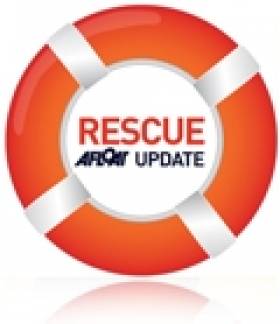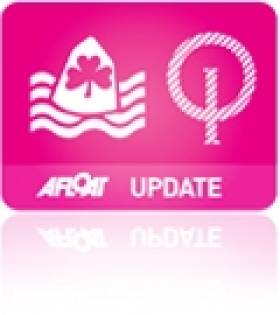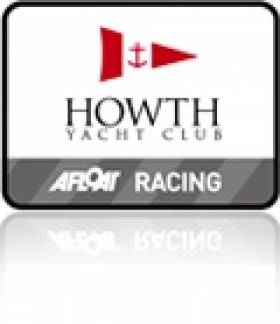Displaying items by tag: training
World Leader in Offshore Simulation Partners with National Maritime College
SEFtec NMCI Offshore Ltd (SNO), a public / private joint venture between SEFtec Global Training Ltd and The National Maritime College of Ireland (NMCI), will be launched tomorrow at the National Maritime College, Co. Cork, by the Minister of Enterprise, Trade & Employment, Batt O'Keeffe.
This venture is a shining example of how to bring together state of the art public infrastructure, in the form of one of the world's most advanced maritime colleges, with private enterprise's expertise in not only offshore training, but in the design, manufacture, installation, commissioning and service of training simulators for the global maritime industry.
The Minister for Enterprise, Trade and Innovation, Batt O'Keeffe TD, who launched the public-private joint venture, said it would support jobs and the growth of the Irish offshore exploration and wind energy sectors. 'The future is bright for the partnership we are announcing here this afternoon. The maritime sector is a diverse and developing global industry that requires huge levels of skill and technical capability,' said Minister O'Keeffe.
Focused on supporting the successful and sustainable growth of the Irish offshore exploration sector, SNO has successfully secured the approval of the Offshore Petroleum Industry Training Organization (OPITO) for its programme of courses. In a sector that is completely focused on safety,OPITO has become the global industries focal point for skills, training and workforce development.
"SNO is very proud to have achieved its OPITO approval this year, the approval came about in a phenomenal time frame and this wouldn't have been possible without the combined efforts of both public and private joint venture partners. This will mean that we can service not only the growing needs of Ireland's offshore sector, but train for the global industry as well" Conor Mowlds, Managing Director SNO Ltd.
SEFtec, an Irish SME with a global focus, commenced trading in 2004 and has quickly become one of the world's leaders in the provision of offshore simulation equipment. Based in a state-of-the-art facility in Cork it has diversified its activities from the design and fabrication of offshore training simulation equipment to training and already operates an OPITO centre in Kazakhstan.
The NMCI, a public private partnership between the Cork Institute of Technology, Vita Lend Lease and the Irish Naval Service was opened in 2004, represents a €60 million investment by the state in maritime training, and is one of the world's most advanced maritime colleges.
The future aim of SNO is to break into the offshore renewable energy sector, with the development of their Offshore Wind Energy Safety Training course (OWEST) ear marked for further development. The OWEST course currently involves Helicopter Winching Techniques, Life Saving Appliances and Vessel Abandonment which is key training for anyone working on or near Offshore Wind Energy Sites.
See below for photos taken this morning at the National Maritime College in Ringaskiddy of delegates on the OPITO approved BOSIET - Offshore Training Course, using the Helicopter Underwater Training Simulator
Young Bigboaters Sought for UK Academy
Applications are open for the RYA's British Keelboat Academy, which aims to give keelboats sailors aged between 18 and 24 a leg-up into competitive international sailing.
The programme utilises a fleet of J80s, identical to the ISA's sailfleet J80s, and also involves sailors in campaigning the TP52 John Merricks II, which is slated to compete in the Sevenstar Round Britain & Ireland later this year.
There is no similar scheme here in Ireland, but judging by recent entries to the likes of the Round Ireland, and the makeup of squads in keelboat events around Ireland, youth interest in keelboat sailing is high.
The Pride of Wicklow entry in the Round Ireland race, crewed by under-21s, surpassed all expectations by finishing fifth on the water and third in class, and the likes of the young crew on board Tiger have consistently shown a clean pair of heels to older and more experienced boats.
Interested parties must fill out the forms HERE and must be a member of the RYA. This scheme might suit young sailor studying in the UK, or those willing to travel for training on a regular basis.
Kinsale Oppie Training on Bank Holiday, by George
The Two Georges are hosting an intensive three-day optimist training course in Kinsale over the June Holiday weekend. Georges Kenefick and Kingston, both highly decorated dinghy sailors, will provide aspiring opti sailors with three days of race prep, on-the-water training, video analysis and high-end reference materials to take away.
The details are below, with contact details at the bottom. The cost is €125 per sailor.
OPTI RACEWEEK 2010
3 Days, 2 Nights, 2 Good to miss!
Everyone Welcome
Venue 1: Kinsale Yacht Club, 5-7th June, 2010
This 3 day intensive race clinic is MUCH more than a training camp, it's a High Performance Racing Experience and good value for money!
3 DAY PRICE: €125.00
So what do you get?
So plan is for Sat/Sun/Mon
Sat (JUNE 5) 11-4.30PM
Sun (JUNE 6) 10-4.30PM
Mon (JUNE 7) 10-4.30PM
We are aiming to get at least 10 hours on the water over the three days, plus all of the video analysis, handouts, presentations, and a mini regatta will be carried out as planned.
3 days of great coaching Video Analysis and detailed briefs each day Coach rotation for maximum benefit
Rule, Tactics and Event Prep Sessions
A copy of the 'Opti Sailing Bible!' booklet A PROFESSIONALLY MADE DVD of the Best Bits of the clinic A Team Racing Challange - prepare for war! A Mini Regatta on day 4 - to put your knowledge to the test.
Coaches:
George Kingston KYC/RCYC
A Youth European Radial Champion
A National Champion in 4 different classes
2008 Irish Optimist World Team Coach
Chosen as the 2010 Australian National Optimist Coach
George Kenefick RCYC
A Student Yachting World Champion
An Irish National Optimist Team Coach
A Junior Helmsman Champion
Conatct; George Kingston - 087 7578082
Junior Race Training in HYC on J80s
Sixty-four of Howth Yacht Club's junior sailors were treated to an evening of race training in the ISA Sailfleet J80s on a fresh Monday evening, under the guidance of Laura Dillon.
A host of support vessels and RIBs facilitated the running of the evening which saw all the children (ranging in age from 9 to 15) taking part in two short windward-leeward 'races' with two senior volunteers on each of the eight J80s.
The moderate southerly wind facilitated exciting conditions in the flat waters of Howth Sound and gave many of the children their first taste of one-design keelboat racing. More than thirty-five volunteers escorted the exhilarated sailors back to the club after their experience.
































































